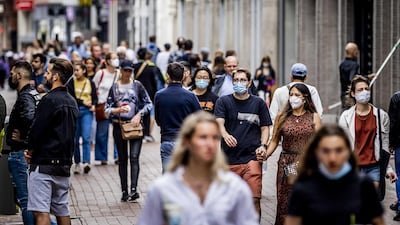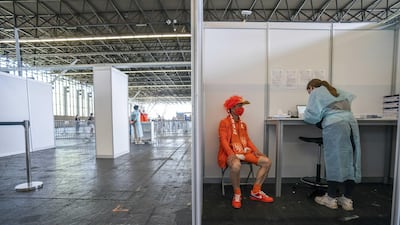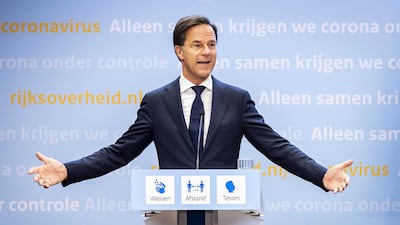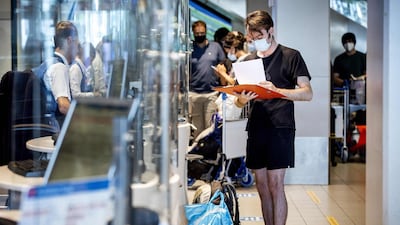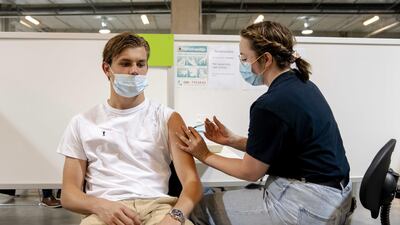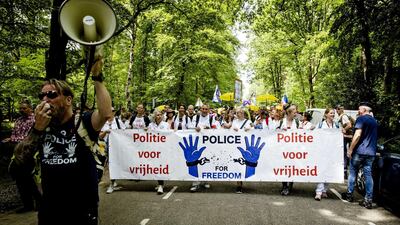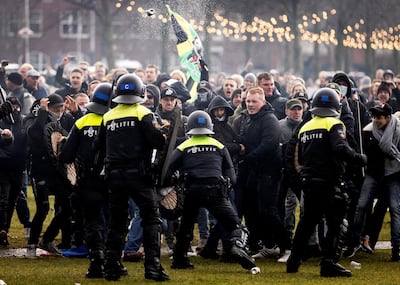Dutch leaders have announced plans to drop almost all Covid-19 restrictions from Saturday in a move that surprised some officials and triggered intense media debate on whether the decision came too soon.
The only restrictive measure against the spread of coronavirus to remain in the Netherlands will be keeping 1.5-metres apart from other people. Obligations to wear a face masks indoors, limits on the number of visitors per household and bans on nightclubs and concerts, among others, will no longer be required.
The country brought an end to a months-long nightly curfew and a lockdown that closed public and private venues. That was not enough to forestall a backlash from those who consider the remaining measures – the first of their kind in the Netherlands since the Second World War – an infringement on their freedom.
A mob torched a Covid-19 testing site in a Dutch fishing village and the glass facade of another, north of Amsterdam, was damaged by an explosion in March. Opponents of the lockdown restrictions held demonstrations across the country, which were accompanied at times by some of the most violent riots in the Netherlands in decades as protesters and riot police clashed.
In a report last week, Europol warned that the combination of the pandemic, the economic crisis and social unrest "contributed to polarisation in society, causing attitudes to harden and increasing acceptance of intimidation, including calls to commit violent acts”.
It cited the arrest in the Netherlands of a man who allegedly called for “citizen’s arrests” of lawmakers and public health workers. It said violence by opponents of the Dutch government’s lockdown measures included hurling stones and fireworks at one city hall and vandalising Covid-19 test locations.
Despite the unrest, the move to lift almost all restrictive measures came as a surprise to some Cabinet members. The regional situation remains poor. Neighbouring countries with lower infection rates are still retaining measures, triggering concerns of infection spilling over into Belgium and Germany.
The Dutch National Institute for Public Health and Environment (RIVM), the entity in charge of giving the government advice regarding the necessary measures, announced that a fourth wave of coronavirus in autumn remains a possibility, caused by the highly infectious Delta variant already spreading in the country.
Like much of the rest of the world, measures to limit the spread of the virus have been a polarising topic in the Netherlands. Since autumn 2020, the government has been imposing new or extending current restrictions while infection levels remained high, testing people’s patience.
Business owners and populist politicians were especially vocal about their frustration. The anti-lockdown lobby questioned the motivation of the restrictions and warned of a threat to their democratic rights and freedom. Some even expressed their anger by sending death threats to the "Dr Fauci of the Netherlands", Jaap van Dissel.
Populist figures in the country such as Thierry Baudet, the leader of the right-wing Forum for Democracy, saw this frustration as an opportunity to draw support to his party.
In the 2021 Dutch general elections, Mr Baudet did not shy away from appealing to those tired of the restrictions, turning the fight against those measures into a symbol of fighting for freedom.
This rhetoric, which many other political parties were cautious not to use, appealed to many and won Mr Baudet six new seats, the largest gain for any party.
Removal of restrictions a message to Dutch electorate
By lifting restrictions sooner than promised, Xander van der Wulp, a senior political reporter for the Dutch Broadcasting Foundation (NOS), believes the government is trying to show people that its main goal is their safety, and not exerting unnecessary control.
“They want to show that as soon as it’s possible they will actually let go of the restrictions, and that is maybe to send a sign to more populist parties who are really against all regulations in the past year, and people who follow them,” he said.
The extent to which the government can interfere in the daily lives of people is a contentious subject in the Netherlands, as the Dutch are historically wary of overweening government rules.
This was reflected in the country’s relaxed approach to curbing the virus last spring, proposing the concepts of an "intelligent lockdown" and herd immunity early on.
“Throughout the corona period, there has always been tension in the Cabinet between those who think we are doing too much and giving people too many restrictions and those who think we are going too fast with softening the rules," Mr van der Wulp said. "It has been a balancing act all the way through,
A return to normal for 'rule hating' Dutch
Back when a nightly curfew was imposed, people cycling home well after it had started was a common sight in major cities like Amsterdam.
It was also common to see people refusing to wear masks properly, even when instructed to do so.
Letting go of the mask-wearing regulation, which remains prevalent worldwide, is a sign for some that the government is handing back control to the people.
At the same time the country's scientists expect the Delta strain to be the chief cause of infection in two months.
Experts warn that the population is unlikely to be sufficiently vaccinated to ward off a fourth wave by autumn.
